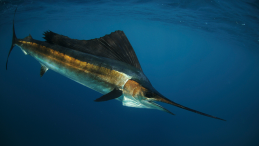On 2 February 2022, UNU-IAS co-organised an online symposium to celebrate World Wetlands Day 2022, focusing on wetland conservation, restoration, and sustainable use under the theme “Wetlands Actions for People and Nature”. The event was organised in partnership with Wetlands International Japan (WIJ), the Global Environment Outreach Centre (GEOC), and the Ministry of the Environment of Japan.
In opening remarks, Shinobu Yamaguchi (Director, UNU-IAS) noted that World Wetlands Day was designated an official UN observance in 2021. She stressed the importance of accelerating actions to connect people and nature, exemplified by UNU-IAS engagement in partnerships such as the United Nations Decade on Ecosystem Restoration, the Satoyama Initiative, and the GEOC project.
Martha Rojas Urrego (Secretary-General, Convention on Wetlands) emphasised that as the most valuable ecosystems, wetlands play a vital role in achieving many of the 2030 global commitments. She reiterated the key message: “Value, manage, restore – and love wetlands” to encourage action by stakeholders at all levels.
Masashi Norihisa (Director, Wildlife Division, Nature Conservation Bureau, Ministry of the Environment of Japan) discussed the current state of wetlands as mentioned in the “Global Wetlands Outlook 2021”, and introduced the newly designated Ramsar site in Japan, reaffirming the ministry’s commitment to reconnecting people with wetlands.
In the keynote speech, Kathryn Bimson (Programme Officer, Water and Wetlands, IUCN Asia) introduced nature-based solutions to enhance wise use of wetlands and mitigate risks such as disasters, climate change, or biodiversity loss.
Yuki Arai (Assistant Professor, Research Center for Social Systems, Shinshu University) highlighted a project for the Awoja wetlands system in Uganda, demonstrating how sustainable wetlands management can be integrated into solutions addressing socio-economic issues.
Mio Ejima (Promotion Office of the Ramsar Convention for Kashima City) discussed local initiatives in the Ariake Sea for the preservation and restoration of the tidal mudflat to highlight the importance of raising awareness and the inclusion of all stakeholders in building a circular economy with the wetlands at its centre.
Rounding up the presentations, Makiko Yanagiya (Programme Coordinator, UNU-IAS) examined various ways of actively engaging people in the conservation and restoration of wetlands using concrete examples from the Satoyama Initiative. She stressed the value of evidence-based approaches and global initiatives like the UN Decade on Ecosystem Restoration, to achieve a society in harmony with nature.
In closing remarks, Kazuaki Hoshino (President, WIJ) highlighted the importance of protecting and restoring wetlands by enhancing our daily connection with nature, and using wetlands wisely to achieve sustainable socio-economic development.

